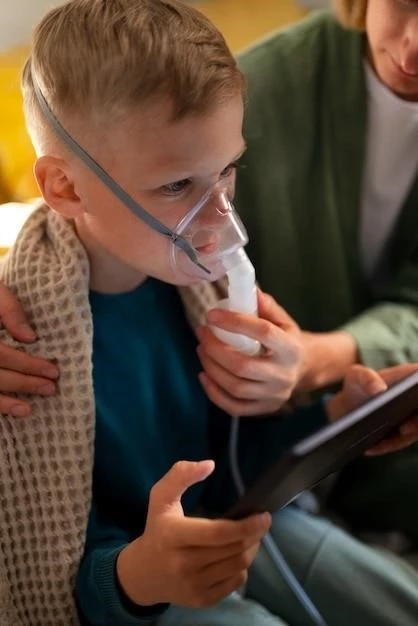Causes of Cantu-Sanchez-Corona-Hernandes Syndrome
The Cantu-Sanchez-Corona-Hernandes Syndrome is primarily caused by specific genetic mutations.
Genetic Mutations
The genetic mutations associated with Cantu-Sanchez-Corona-Hernandes Syndrome primarily involve alterations in the ABCC9 gene, which plays a crucial role in regulating potassium channels in the body. These mutations lead to the overactivation of potassium channels, resulting in the characteristic symptoms of the syndrome. The specific genetic changes can vary among affected individuals, contributing to the diverse clinical presentations of the condition. Understanding these genetic mutations is essential for accurate diagnosis and targeted treatment approaches in individuals with Cantu-Sanchez-Corona-Hernandes Syndrome.

Symptoms of Cantu-Sanchez-Corona-Hernandes Syndrome
Patients with this syndrome commonly present with cardiovascular symptoms and skeletal abnormalities.
Cardiovascular Symptoms
Individuals with Cantu-Sanchez-Corona-Hernandes Syndrome may experience a range of cardiovascular symptoms, including hypertension, cardiomegaly, structural heart defects, and abnormal heart rhythms. These symptoms can impact the overall cardiac function and require careful monitoring and management to prevent complications such as heart failure or arrhythmias. Collaborative care involving cardiologists and other healthcare professionals is essential to address the cardiovascular manifestations of this syndrome and optimize patient outcomes.
Skeletal Abnormalities
Skeletal abnormalities are common in individuals with Cantu-Sanchez-Corona-Hernandes Syndrome, including thickened bones, craniofacial dysmorphism, and joint hypermobility. These skeletal manifestations can impact physical function, mobility, and quality of life. Management strategies may involve orthopedic interventions, physical therapy, and orthotic devices to support musculoskeletal health and function. Early detection and interdisciplinary care are essential to address the skeletal challenges associated with this syndrome and improve overall well-being for affected individuals.
Diagnosis and Treatment of Cantu-Sanchez-Corona-Hernandes Syndrome
Diagnosis involves genetic testing and imaging studies. Management focuses on symptom relief and supportive care.
Diagnostic Procedures
Diagnostic procedures for Cantu-Sanchez-Corona-Hernandes Syndrome may include genetic testing to identify mutations in the ABCC9 gene, echocardiography to assess cardiac structure and function, skeletal imaging to detect bone abnormalities, and metabolic testing to evaluate metabolic abnormalities associated with the syndrome. These diagnostic assessments help confirm the diagnosis and guide the development of personalized treatment plans to address the specific needs of individuals with this rare genetic condition.
Management Strategies
Management strategies for Cantu-Sanchez-Corona-Hernandes Syndrome involve a multidisciplinary approach aimed at addressing the cardiovascular symptoms, skeletal abnormalities, and other associated complications. Treatment may consist of medications to manage hypertension and heart-related issues, orthopedic interventions for skeletal problems, physical therapy to improve strength and mobility, and regular monitoring to detect and address any emerging health concerns promptly. Genetic counseling and patient education play a crucial role in empowering individuals and their families to cope with the challenges of this rare genetic disorder effectively.
Genetic Basis of Cantu-Sanchez-Corona-Hernandes Syndrome
The syndrome is linked to mutations in the ABCC9 gene, affecting potassium channel regulation.
Inheritance Patterns
Cantu-Sanchez-Corona-Hernandes Syndrome follows an autosomal dominant pattern of inheritance, where a mutation in one copy of the ABCC9 gene is sufficient to cause the condition. In some cases, the syndrome may also arise from de novo mutations, meaning the genetic change is not inherited but occurs spontaneously. Individuals with this syndrome have a 50% chance of passing the mutated gene to each offspring, leading to the potential for future generations to inherit the disorder. Genetic counseling is essential for families to understand the hereditary nature of Cantu-Sanchez-Corona-Hernandes Syndrome and make informed decisions regarding family planning and genetic testing.
Specific Gene Mutations
Cantu-Sanchez-Corona-Hernandes Syndrome is associated with specific mutations in the ABCC9 gene, located on chromosome 12. These mutations lead to abnormal potassium channel activity, affecting various tissues and organs in the body. The identified mutations result in the characteristic features of the syndrome, including cardiovascular and skeletal abnormalities. Understanding the precise genetic alterations in the ABCC9 gene is crucial for accurate diagnosis, genetic testing, and personalized treatment strategies tailored to address the underlying molecular basis of Cantu-Sanchez-Corona-Hernandes Syndrome.
Prognosis for Cantu-Sanchez-Corona-Hernandes Syndrome Patients
The prognosis varies based on symptom severity and individual response to treatment interventions.
Long-Term Outlook
The long-term outlook for individuals with Cantu-Sanchez-Corona-Hernandes Syndrome is variable, depending on the severity of symptoms and the effectiveness of treatment interventions. Close monitoring by a healthcare team, including specialists in cardiology, genetics, and orthopedics, is essential to manage the syndrome’s complexities and optimize long-term health outcomes. While the condition can impact quality of life, early diagnosis, individualized treatment plans, and ongoing support can help individuals with Cantu-Sanchez-Corona-Hernandes Syndrome lead fulfilling lives and mitigate potential complications associated with the disorder.
Potential Complications
Individuals with Cantu-Sanchez-Corona-Hernandes Syndrome may be at risk of various complications, including cardiovascular issues such as heart failure, arrhythmias, and hypertension. Skeletal complications such as bone abnormalities and joint problems can also arise, impacting mobility and physical function. Additionally, individuals may experience metabolic disturbances and developmental delays. Regular medical follow-up, symptom management, and proactive interventions are crucial to prevent or address these potential complications, improve overall well-being, and enhance the quality of life for individuals living with Cantu-Sanchez-Corona-Hernandes Syndrome.
Research Updates on Cantu-Sanchez-Corona-Hernandes Syndrome
Advances in research aim to enhance understanding, improve diagnosis, and develop targeted treatments.
Recent Studies
Recent studies on Cantu-Sanchez-Corona-Hernandes Syndrome have focused on elucidating the molecular mechanisms underlying the condition, exploring potential therapeutic targets, and investigating novel treatment approaches. Researchers are working to uncover the precise genetic pathways involved, identify biomarkers for early diagnosis, and enhance our knowledge of the syndrome’s clinical manifestations. These studies aim to pave the way for innovative interventions, personalized medicine strategies, and improved outcomes for individuals affected by Cantu-Sanchez-Corona-Hernandes Syndrome.
Emerging Treatments
Emerging treatments for Cantu-Sanchez-Corona-Hernandes Syndrome are a focal point in current research efforts. Novel therapeutic strategies aim to target the underlying molecular defects, such as modulating potassium channel function, managing cardiovascular complications, and addressing skeletal abnormalities. From gene therapy to pharmacological interventions and innovative surgical techniques, researchers are exploring a range of approaches to improve symptom management, enhance patient outcomes, and ultimately provide a better quality of life for individuals with this rare genetic disorder. Continued research and clinical trials are essential to advance treatment options and positively impact the lives of those affected by Cantu-Sanchez-Corona-Hernandes Syndrome.
Living with Cantu-Sanchez-Corona-Hernandes Syndrome
Patients need comprehensive care to manage symptoms and improve their quality of life effectively.
Quality of Life Considerations
Ensuring the quality of life for individuals with Cantu-Sanchez-Corona-Hernandes Syndrome involves addressing physical, emotional, and social needs. Comprehensive care plans should focus on symptom management, rehabilitation services, psychological support, and educational resources. Strategies to enhance independence, promote social inclusion, and foster a supportive environment are essential. By prioritizing holistic care and individualized support, healthcare providers can empower patients to navigate challenges, maintain well-being, and lead fulfilling lives despite the complexities of the syndrome.
Coping Mechanisms
Implementing effective coping mechanisms is crucial for individuals living with Cantu-Sanchez-Corona-Hernandes Syndrome to navigate the challenges associated with the condition. Strategies such as mindfulness techniques, stress management, peer support groups, and mental health counseling can help individuals and their families cope with the physical and emotional impact of the syndrome. Encouraging open communication, fostering resilience, and promoting self-care practices are essential components of developing adaptive coping strategies. By addressing psychological well-being and building resilience, individuals can enhance their ability to cope with the daily complexities of Cantu-Sanchez-Corona-Hernandes Syndrome and improve their overall quality of life.
Support and Resources for Cantu-Sanchez-Corona-Hernandes Syndrome
Various patient advocacy groups and medical specialists offer valuable support and expertise.
Patient Advocacy Groups
Patient advocacy groups dedicated to Cantu-Sanchez-Corona-Hernandes Syndrome provide valuable support, resources, and community connections for individuals and families affected by the condition. These organizations offer educational materials, access to expert information, and opportunities for networking with other affected individuals to share experiences and gain insights. By joining advocacy groups, individuals can access emotional support, stay informed about the latest developments, participate in awareness campaigns, and advocate for better care and resources. The collective efforts of patient advocacy groups play a vital role in empowering individuals with Cantu-Sanchez-Corona-Hernandes Syndrome and ensuring they receive comprehensive support to navigate their healthcare journey effectively.
Medical Specialists
Medical specialists experienced in Cantu-Sanchez-Corona-Hernandes Syndrome, such as geneticists, cardiologists, endocrinologists, orthopedic surgeons, and genetic counselors, play a vital role in the comprehensive care of individuals with this rare genetic disorder; These experts provide specialized knowledge, deliver tailored treatment plans, and coordinate multidisciplinary care to address the diverse medical needs associated with the syndrome. Collaborating with a team of skilled professionals ensures that patients receive individualized care, proactive management of symptoms, and ongoing support to optimize their health outcomes and quality of life while living with Cantu-Sanchez-Corona-Hernandes Syndrome.
